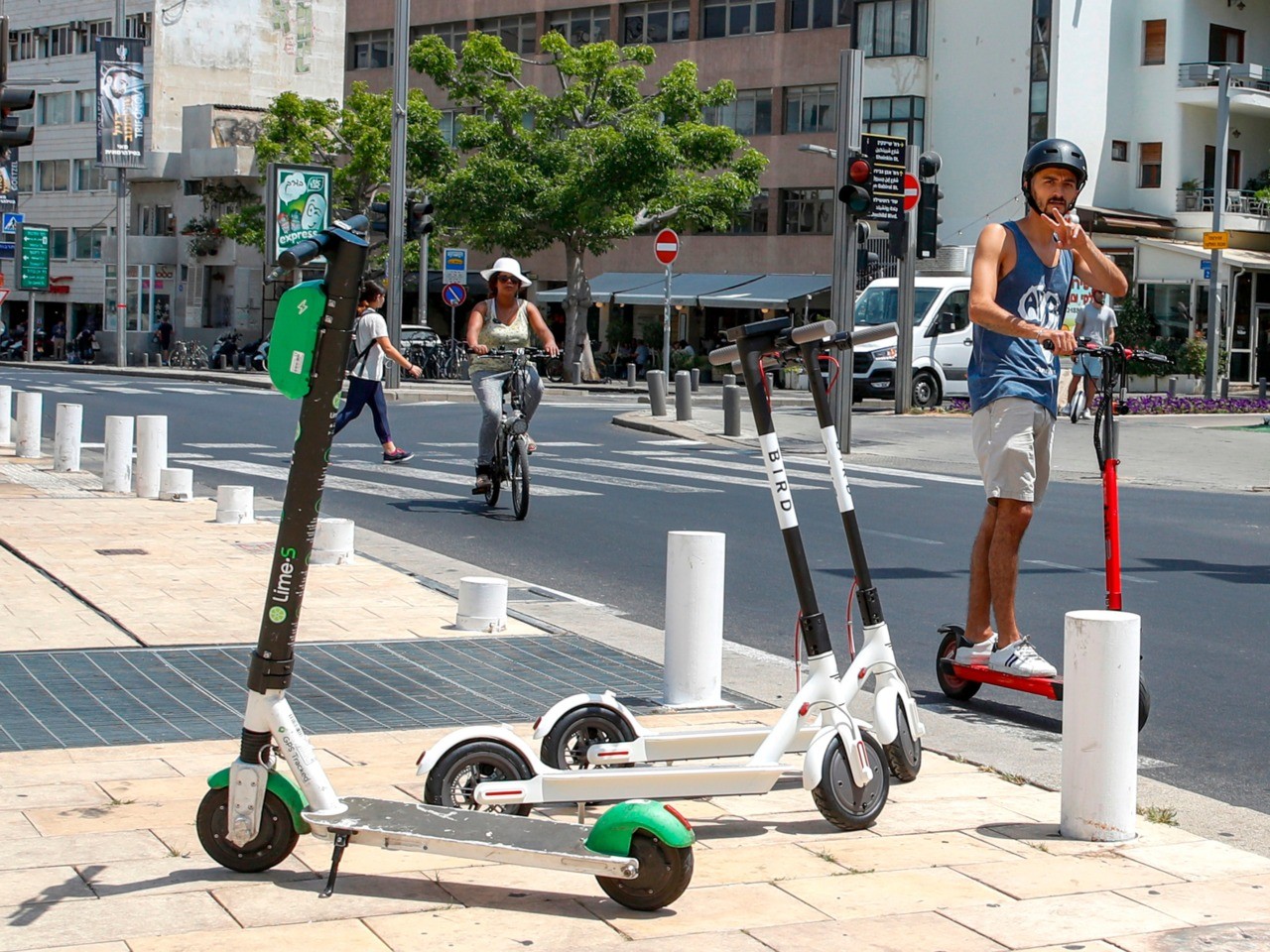Tel Aviv (AFP) — Matan Ben Ari was among the many taking to one of Tel Aviv’s main streets on a recent day — not with a car or public transport, but with an electric scooter.
He uses them all week, including on Saturdays, the weekly Sabbath or Jewish day of rest, when no public transport is allowed.
“There is no public transport and taxis are expensive,” said the 28-year-old.
“That leaves this solution. Also it’s fun to travel with it.”
Israelis in the country’s economic capital Tel Aviv have embraced electric scooters and their smart-phone rental systems, using them to zip along Mediterranean beaches and avoid heavy traffic.
They provide the added benefit of serving as a transport option on the Sabbath as well.
But, like in other cities, the growing popularity of electric scooters has not come without complaints from those who say they are a dangerous nuisance.
Wind at their backs and phones in their hands, Ben Ari and others were riding along Ibn Gavirol street, stretching north-to-south across the city and where they compete for space with bicycles.
“It’s convenient, accessible,” said 20-year-old Inbal as she leaned on the handlebars of her scooter.
An app on her phone tells her where the nearest available scooter is located.
“It’s easy,” she said. “I go to the beach, I stop there, I use the app and that’s all.”
– ‘It’s simple’ –
Tel Aviv, with its reputation for modernity, openness and list of high-tech firms, seems especially likely to embrace the trend.
Its sunny weather, flat landscape and traffic jams also make the scooters an appealing option.
Bird, a US-based firm, was the first to deploy in August last year with 2,500 electric scooters, followed by Wind, Lime and Leo.
There are now around 7,500 available, in addition to the thousands of bicycles and electric bikes already on the streets.
“Micromobility was already big (in Tel Aviv) and Bird has accelerated the process,” said Yaniv Rivlin, head of Bird in Israel, using the word to describe lightweight vehicles like electric scooters and bikes.
With 60 percent of its residents under 40, Tel Aviv is “scooter paradise,” he said.
But the trend has not only drawn in young people.
Electric scooters have been a life-changer in the congested city for Adi Krispin, 43.
He uses them at least an hour and a half per day to bring his daughter to the playground, go to work and grocery shopping, he said.
“It’s difficult to manoeuver a bike to bring it into the house or the office,” he said. “It’s simple with a scooter.”
– ‘This revolution’ –
City officials note positive benefits from the trend.
Meital Lehavi, deputy mayor in charge of transport, said scooters have helped fill a void in public transport, which “does not meet the real needs” of residents in a city that tends to be more progressive than the rest of the country.
She notes the influence of ultra-Orthodox Jews on Israel’s right-wing government and the Sabbath ban on public transport.
The scooters also have a positive environmental effect when they are used in place of cars, she added.
However, Tel Aviv is like other cities across the world in struggling with the downsides.
Lehavi says separate lanes for bicycles and scooters are lacking as well as racks where they can be stored.
Riders often ride freely on sidewalks and leave scooters wherever they feel, creating obstacles that can pose a danger.
“It’s a new trend that no one really knows what to make of,” she said.
Taking a cue from other cities worldwide, Tel Aviv has decided to regulate their usage.
It has given operators until mid-September to put in place dedicated racks and to share their data with city officials.
Bird’s Rivlin said those requirements were “reasonable”.
“Thanks to the scooters, there are fewer cars and we will continue to cooperate with the city to further this revolution in the months and years to come,” he said.
